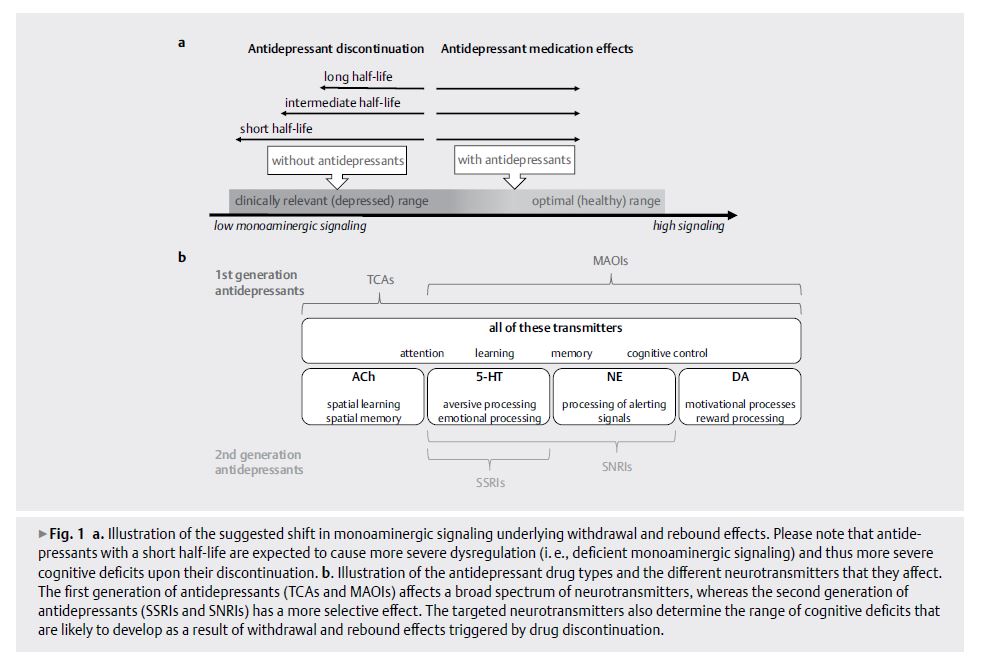
长期服用抗抑郁药会产生撤药效应和反跳症状,这些症状可能在减量和/或停用这些药物后出现。尽管近年来已在临床症状学方面对这些现象进行了广泛研究,但针对撤药和反跳对一般认知影响的系统性研究缺乏。本文作者提出了一个基于异速适应想法的新框架,它允许预测不同抗抑郁药物在撤药和反跳效应下如何损害不同的认知过程。作者指出,这一框架依赖于以下假设:抗抑郁药诱发的认知障碍类型由靶向神经递质系统决定,而缺陷的严重程度取决于其半衰期。
为了更多地了解这一框架和作者的结论,本刊主编诚挚地邀请您阅读最新一期的Pharmacopsychiatry。
An Oppositional Tolerance Account for Potential Cognitive Deficits Caused by the Discontinuation of Antidepressant Drugs
Colzato L et al.

Depression is the leading cause of disability worldwide, making antidepressant drugs the most used psychiatric drugs in the USA. Withdrawal effects and rebound symptoms frequently occur after the reduction and/or discontinuation of these drugs. Although these phenomena have been investigated with respect to the clinical symptomatology, no studies have systematically investigated the effects of withdrawal/rebound on general cognition. We present a novel framework based on the idea of allostatic adaptation, which allows to predict how different antidepressants likely impair different cognitive processes as a result of withdrawal and rebound effects. This framework relies on the assumptions that the type of cognitive impairments evoked by an antidepressant is determined by the targeted neurotransmitter systems, while the severity of deficits depends on its half-life. Our model predicts that the severity of detrimental cognitive withdrawal and rebound effects increases with a shorter half-life of the discontinued antidepressant drug. It further proposes drug-specific effects: antidepressants mainly targeting serotonin should primarily impair aversive and emotional processing, those targeting norepinephrine should impair the processing of alerting signals, those targeting dopamine should impair motivational processes and reward processing, and those targeting acetylcholine should impair spatial learning and memory. We hope that this framework will motivate further research to better understand and explain cognitive changes as a consequence of antidepressant discontinuation.
